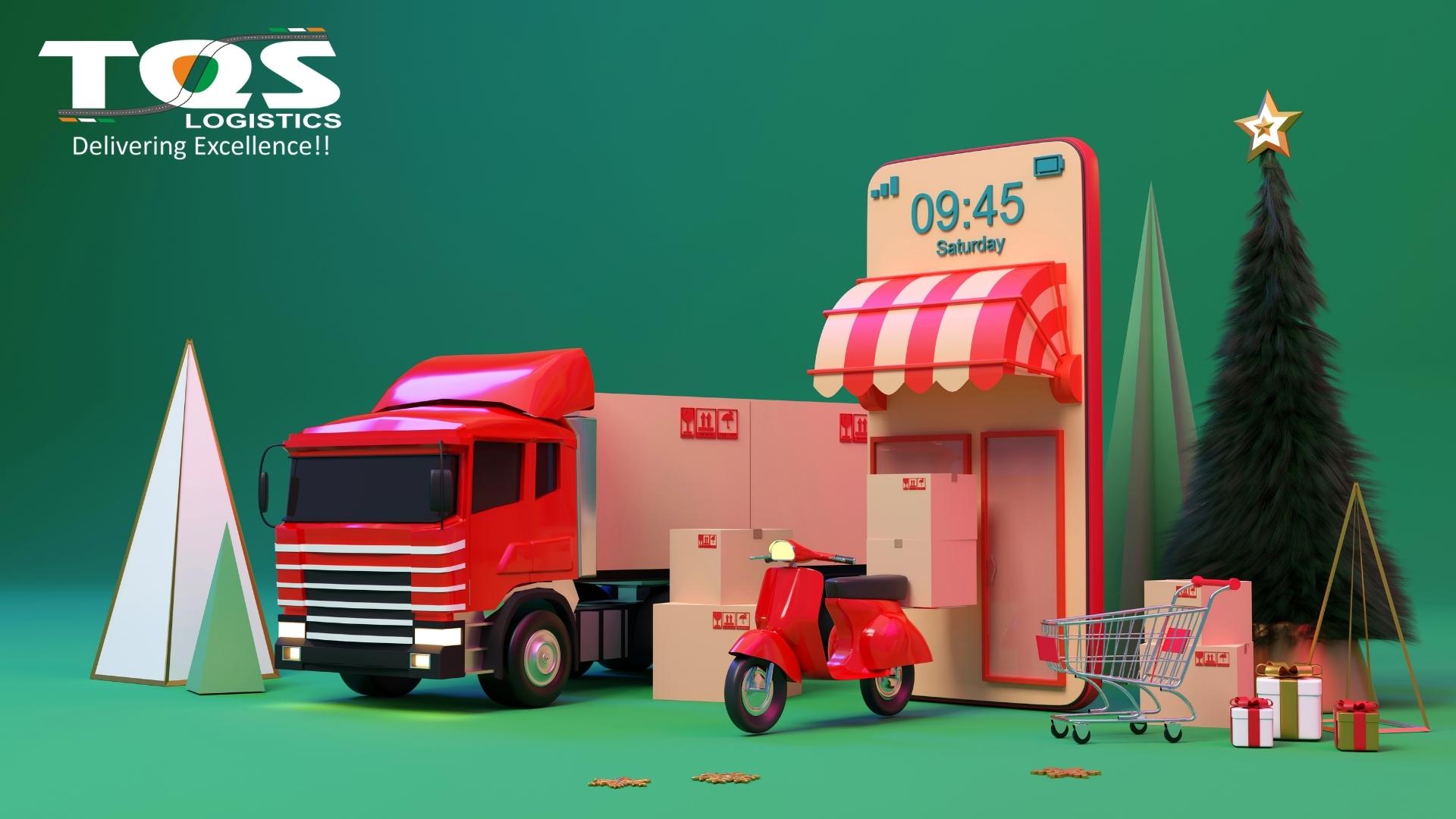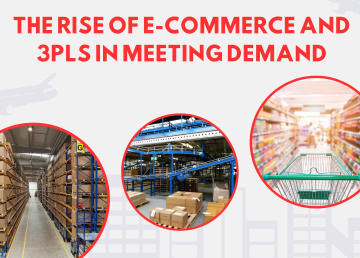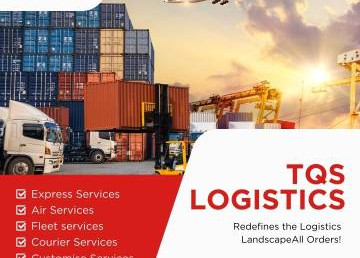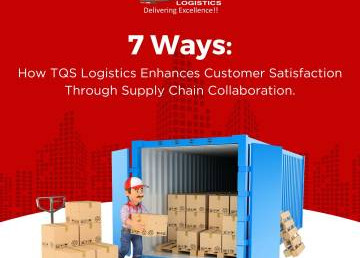
How Does eCommerce Logistics Work in India in 2022?
How Does eCommerce Logistics Work in India in 2022?
Customers and businesses alike have frequently questioned how Ecommerce logistics functions in light of the unprecedently rapid growth of social commerce and Ecommerce Industry. To develop their operations and attract millions of clients, online firms in all niches depend on Ecommerce logistics suppliers. With millions of customers now preferring to shop online, ecommerce businesses need more effective and efficient logistics solutions to handle growing quantities.
1) Online retailers can use the shipping, packaging, and picking services that e-commerce logistics and courier companies offer. They also provide a wide range of other shipping services that might aid in a company's expansion and outreach to new markets. Understanding how end-to-end logistics operate is the only way to truly optimise logistics operations. Ecommerce businesses may select the finest logistics partners if they have a thorough understanding of the different delivery phases.
The first step in the correct manner is to partner with a dependable and trustworthy logistics provider. From the time an order is placed until the consumer receives it, every step of the delivery process has its own intricacies and challenges. In actuality, a shipment must pass through
In order to give you a better grasp of what happens in eCommerce shipping and how Ecommerce logistics work, we will examine each stage in detail and break it down in this post. Understanding how shipping costs are determined and determining which services are more important to their business will aid eCommerce enterprises. Continue reading then!
Different Steps of India's Internal ECommerce Logistics
Every eCommerce logistics company aims to make the process of delivering orders from the seller to the client as simple as possible. Logistics companies have traditionally helped businesses and industries in India transport more easily. However, the rapid development of social and online commerce over the past ten years has forced logistics service providers to expand the range of shipping services they offer.
Additionally, in order to stay ahead of the competition, these logistics service providers had to enhance their current offerings. The shipping and delivery process, in general, consists of 5 parts. Looking at these will assist you in figuring out how to improve fulfilment for your eCommerce firm.
Moreover, in order to stay ahead of the competition, these logistics service providers had to enhance their current offerings. The shipping and delivery process, in general, consists of 5 parts. Examining these can assist you in figuring out how your eCommerce company may optimise fulfilment and improve each customer's post-purchase experience. These stages are including:
2) Inventory and storage
Inventory management is crucial to order fulfilment and plays a significant role in the operation of eCommerce logistics. Cargo Movers Making sure the things you require are accessible and prepared to ship as soon as the order is placed is the responsibility of this aspect of logistics.
The majority of logistics companies provide warehousing services so that inventory can be kept there and picked up quickly by their delivery personnel. A logistics business might operate by offering comprehensive inventory and warehouse management solutions to online retailers.
Logistics providers can keep all of the seller's orders in several warehouses close to the consumer base by utilising WMS (Warehouse Management System) and OMS (Order Management System). A WMS and OMS may manage product returns and exchanges, record inventory, monitor incoming and exiting items, and record inventory. When it comes time to ship an order, this can assist save time and money. Some logistics firms even focus on inventory management, allowing you to monitor your supply in real time.
3) Manifestation and pickup
You can begin shipping orders after your stock has been properly established, whether in a warehouse or storage facility owned by your business, your logistics provider, or another 3PL. Order manifestation is the procedure used to place a shipment order with the appropriate logistics provider.
This entails entering the order information into their database, generating an AWB (airway bill), and printing a shipping label before sending the order for delivery. Making the order available for pickup is the process's last step. Depending on the type of eCommerce logistics service you use, the duration of the manifestation will vary. Since TQS Logistics allows you to link with a variety of logistics partners, this process is often more complicated for large numbers of orders.
4) Exceptions for last-mile deliveries and deliveries
The final leg of the transportation services offered by logistics companies is the delivery's last mile. This section is responsible for pinode tracker up orders from their transit storage areas and delivering them to clients. A delivery agent picks up the item from the closest hub and delivers it to the consumer in a vehicle or fleet of their own during last-mile delivery operations. Due to the issues and difficulties it encounters, last-mile delivery is regarded as the most expensive part of the delivery process.
With the last kind of delivery exception, a logistics business that keeps a strong NDR management system might be extremely useful. When a failed delivery attempt is notified, TQS Logistics offers an automatic NDR system that immediately forwards issue-specific inquiries to consumers.
The appropriate information is immediately gathered to increase the likelihood that the second delivery attempt will go smoothly, regardless of whether it was due to the time of the delivery or an incorrect address being provided, reducing the number of delivery exceptions that are cancelled and become RTOs (return-to-origin).
Final Conclusion
A logistics company's job is to supervise the packaging, pick-up, and successful delivery of any and all orders placed with them, as is obvious to anyone. However, the range of services for eCommerce logistics goes far more than this. For their solutions to be as effective as possible, eCommerce logistics businesses must make proper use of the most recent technology developments.
Considering that eCommerce serves such a sizable population of picky and enthusiastic clients, merely sending the product is insufficient. Customers want the e-commerce company they bought from to provide them with prompt updates and easy order tracking. Logistics partners may guarantee that the entire process is transparent to customers by using effective management systems for inventory, order formation, tracking, NDRs, and returns. both you and your customers.
The responsibility of eCommerce logistics service providers is to collaborate closely with the eCommerce business so that any shipment problems or delays can be handled promptly and without causing the client any inconvenience. We hope that this post has given you a better understanding of how e-commerce logistics operate and the types of services that an eCommerce company should seek out when selecting a logistics partner.



